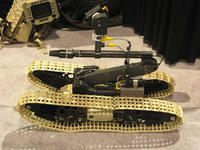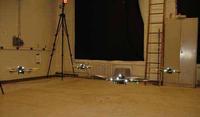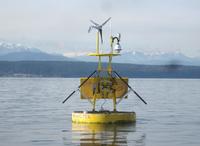-
Water mist puts out fires at low pressure
A new water mist system allows for fires to be extinguished from a distance of eight meters; the system’s special nozzles generate a fine mist of tiny water droplets; the water and the propellant nitrogen are non-hazardous, environmentally friendly, and leave no residues
-
-
USSI showcases port security system
To help secure U.S. ports and waterways which provide a vital link to the global supply chain, US Seismic Systems Inc. (USSI) has developed an underwater fiber-optic sonar system that detects small craft entering protected areas
-
-
Japanese pharmaceutical crippled by insider cyberattack
Last week a disgruntled former contract employee pleaded guilty for severely disrupting the networks of Shionogi, a Japanese pharmaceutical firm; the attacks were so severe that they crippled Shionogi’s operations for “a number of days, leaving employees unable to ship products, to cut checks or even communicate via email,” according to court documents
-
-
Hong Kong arrests stock exchange hacker
Last Friday authorities in Hong Kong announced that they had arrested a man for hacking into the city’s stock exchange and disrupting the trades of seven companies; two weeks ago the Hong Kong stock exchange’s website was hit with a malicious attack that caused several firms including global banking giant HSBC and the international airline Cathay Pacific to suspend trading for half a day
-
-
Micro Unmanned Ground Vehicle helps soldiers, first responders

Weighing just over ten pounds, Dragon Runner 10 (DR10) is small enough to carry in an assault pack and rugged enough to throw into buildings and hostile environments; the DR10 has multiple sensor and payload options, and thus is suitable for reconnaissance and surveillance missions to support small military units, patrols, and first responder teams
-
-
Joplin recovers quickly, schools open on time

In a show of resiliency and determination, schools in Joplin, Missouri opened on time last week less than ninety days after a devastating tornado leveled much of the town; the tornado’s 200 mile per hour winds tore through Joplin killing 160 people, destroying thousands of homes, and damaging ten schools while completely destroying four others, yet despite the destruction more than 90 percent of Joplin’s students returned to school on time as promised
-
-
"Swarm" UAV reconnaissance demonstrated

Boeing successfully demonstrated autonomous communications and operation of dissimilar unmanned aerial vehicles (UAV) in flight tests over the rugged terrain of eastern Oregon; swarm technology is similar to how insects communicate and perform tasks as an intelligent group; the UAVs worked together to search the test area through self-generating waypoints and terrain mapping, while simultaneously sending information to teams on the ground
-
-
Still too early to determine Joplin tornado recovery costs
As Missouri recovers from the colossal tornado that leveled Joplin and the severe flooding in other parts of the state, cleanup efforts have been complicated by the lack of financial data on how much rebuilding will cost; state officials still do not have an exact figure for the costs of reconstruction
-
-
Arkansas farmers and ranchers crippled by natural disasters
This year’s series of natural disasters have crippled Arkansas’ farming and ranching sectors; the barrage of natural disasters including floods, droughts, and fires have resulted in more than half a billion dollars in losses for farmers in Arkansas
-
-
Developing countries at highest risk from natural disasters
A new report warns that China and India are at high risk from natural disasters as their economies are less resilient in dealing with the massive costs of reconstruction
-
-
Lockheed Martin shows tiny surveillance UAV

The Samarai UAV is sixteen inches long and weighs less than half a pound; while flying, it can stream live video from a camera that rotated around its center providing a 360 degree view without a gimbal; it can be carried in a backpack and launchedt from the ground or like a boomerang
-
-
Bio-Key acquires S.I.C., hopes to tap mobile phone fingerprint market
On Monday Bio-Key International, Inc. announced that it had signed a letter of intent to acquire S.I.C. Biometrics Inc., a manufacturer of a plug-in biometric fingerprint scanner for mobile phones; the acquisition leaves Bio-Key International in position to tap into the lucrative mobile biometric market, especially for Apple products
-
-
ManTech wades into private cybersecurity market
In an increasing trend, more traditional defense contractors are seeking to expand their businesses by entering the burgeoning field of cybersecurity for commercial companies; after disposing of its private sector cybersecurity business in 2002, ManTech International is seeking to enter the market once more
-
-
Buoy system helps protect U.S. ports

With America’s ports, waterways, and vessels handling more than $700 billion in goods annually, a terrorist attack on the system would have a crippling effect on the U.S. economy; to help mitigate these threats, Intellicheck Mobilisa has developed Aegeus, a series of buoys which have the capability of creating a surveillance perimeter that detects incoming vessels, biological substances, and even nuclear bombs
-
-
U.K. police procurement hub goes live
The U.K. launches a new, Amazon-style online procurement process which enables police forces to buy specified goods and services online; all forty-three U.K. police forces are expected to be using the hub by June 2012
-
- All
- Regional
- Water
- Biometrics
- Borders/Immig
- Business
- Cybersecurity
- Detection
- Disasters
- Government
- Infrastructure
- International
- Public health
- Public Safety
- Communication interoperabillity
- Emergency services
- Emergency medical services
- Fire
- First response
- IEDs
- Law Enforcement
- Law Enforcement Technology
- Military technology
- Nonlethal weapons
- Nuclear weapons
- Personal protection equipment
- Police
- Notification /alert systems
- Situational awareness
- Weapons systems
- Sci-Tech
- Sector Reports
- Surveillance
- Transportation
Advertising & Marketing: advertise@newswirepubs.com
Editorial: editor@newswirepubs.com
General: info@newswirepubs.com
2010-2011 © News Wire Publications, LLC News Wire Publications, LLC
220 Old Country Road | Suite 200 | Mineola | New York | 11501
Permissions and Policies
Editorial: editor@newswirepubs.com
General: info@newswirepubs.com
2010-2011 © News Wire Publications, LLC News Wire Publications, LLC
220 Old Country Road | Suite 200 | Mineola | New York | 11501
Permissions and Policies
